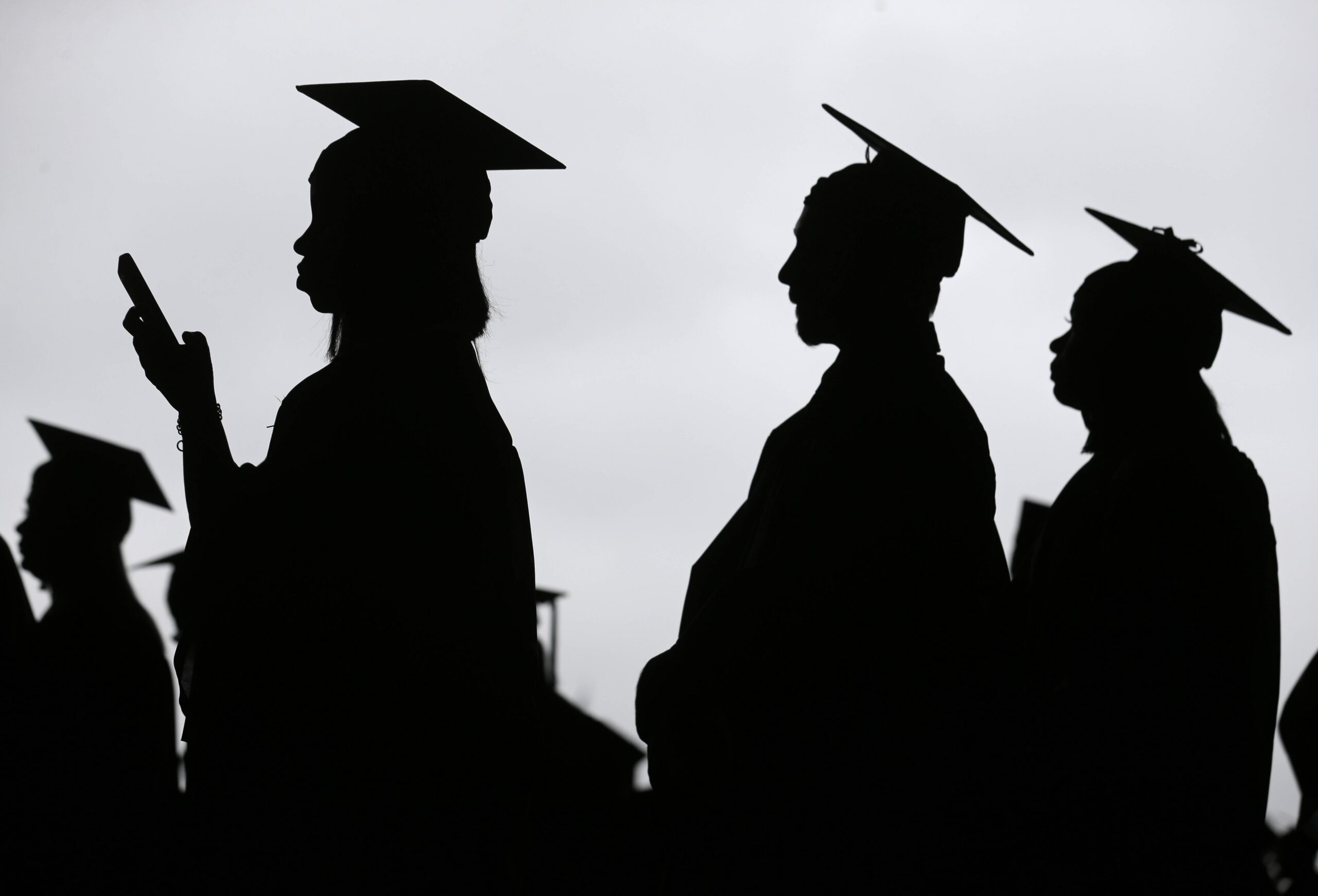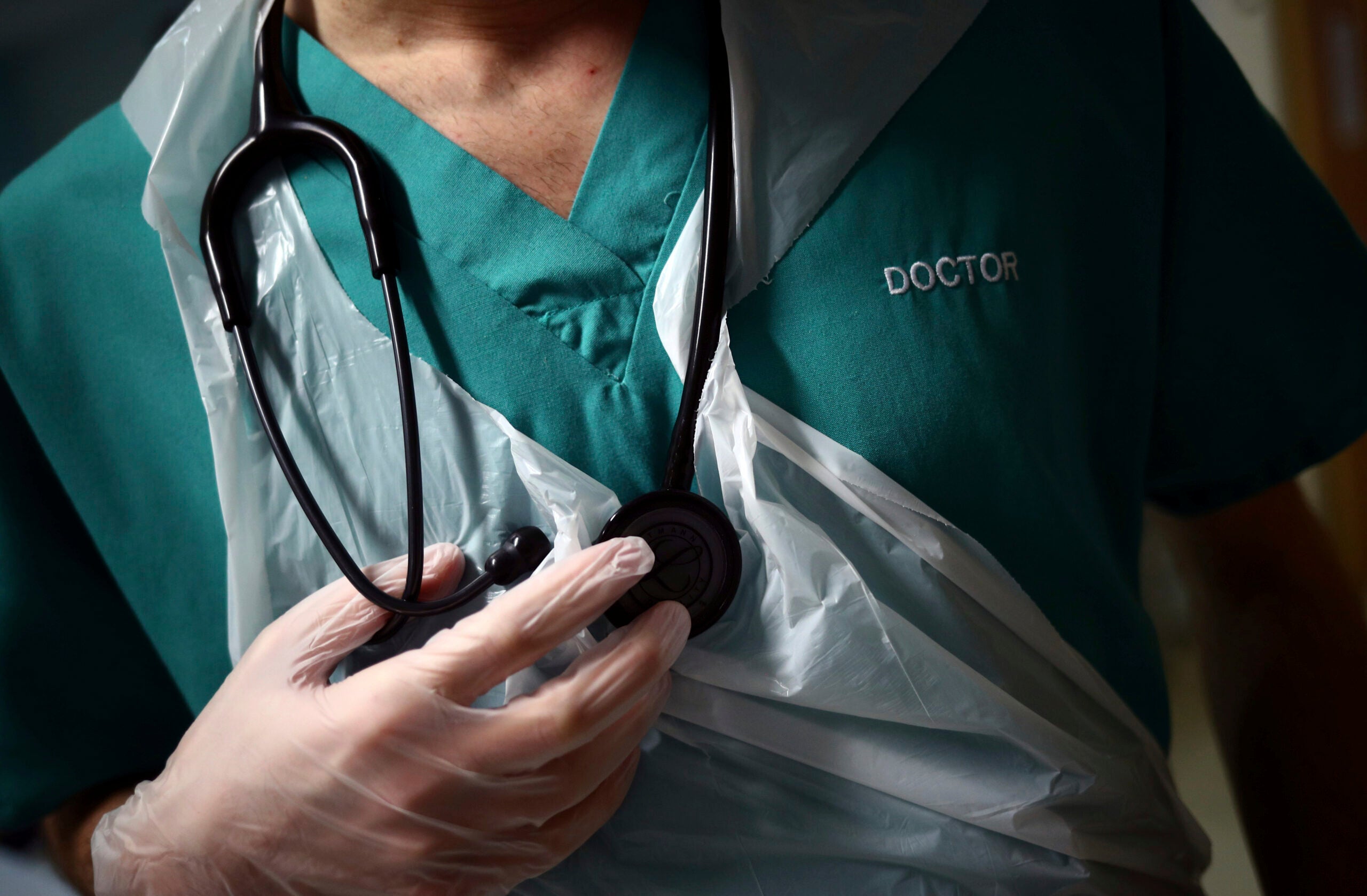As the federal government resumes its collections for student loan debts, the head of a Wisconsin student debt help group says there are ways to manage repayments.
In May, President Donald Trump’s administration resumed collections on defaulted student loans for the first time since 2020. Meanwhile, a TransUnion analysis found that roughly one-fifth of all federal student loan borrowers are seriously delinquent.
The Trump administration first paused loan repayments in March 2020 as a response to the COVID-19 pandemic.
News with a little more humanity
WPR’s “Wisconsin Today” newsletter keeps you connected to the state you love without feeling overwhelmed. No paywall. No agenda. No corporate filter.
Carole Trone is executive director of the Wisconsin Coalition on Student Debt. Trone also leads the Fair Opportunity Project, a nonprofit focused on college access and affordability.
She told WPR’s “Wisconsin Today” that her group’s borrower helpline is receiving spikes in calls that they’ve never seen before.
“We’re seeing borrowers who are contacting us because they’re basically unsure what they should be doing about their loans,” Trone said. “We’ve had borrowers contact us and say ‘This all seemed so overwhelming. I didn’t know what to do, so I didn’t do anything.’”
Trone said that this is the first time that some borrowers have had to make regular payments on their school loans.
“If you were a student who left college right before the pandemic, this may be the first time that you’re actually coming to terms with repayment and what that means,” she said.
Americans have nearly $1.8 trillion in student loan debt, according to a March update from the Education Data Initiative. The average total balance of federal student loans is $38,375.
On “Wisconsin Today,” Trone spoke about student debt collections, as well as resources and options for borrowers.
The following was edited for brevity and clarity.
Kate Archer Kent: The Department of Education said that it would pair collections restarting with new efforts to ensure borrowers know how to get out of default. Has that been the case?
Carole Trone: It was an announcement. And just like many announcements, the actual administrative efforts to make that happen are still in the works. That said, what we are encouraging of all borrowers is don’t wait until it gets to collections. There are steps that you can take.
KAK: If a Wisconsin resident is delinquent or struggling to pay back their student loans or not knowing what to do, what are their options?
CT: There are several options. The most important message that we want to give to your listeners is to make sure that they can take action so that their confusion and the potential intimidation they feel about dealing with what their loan situation is doesn’t cause them to just avoid it.
There are some very basic things that every borrower should do. They should check to see actually what loans they have, and they can do that through studentaid.gov.
Next, they can see through that account who their loan servicers are. If they’re feeling overwhelmed, first, they should see what their repayment amount is listed as. If that payment is unmanageable for them, they need to contact their loan servicer, and the loan servicer can work with them on either forbearance or to find what’s called an income-driven repayment plan, which will calibrate those payments based on the borrower’s income.
KAK: The New York Fed says 2.2 million student loan recipients had their credit scores dropped by 100 points in the first quarter of 2025. Can you help explain what sort of hit that is?
CT: That’s significant. And we are hearing from a lot of borrowers through our helpline that we are also seeing even much bigger drops. When your credit rating drops like that, there are all kinds of consequences. It affects your ability to take out other kinds of loans, car loans, mortgages. It can affect your ability to get personal loans if you choose to go back to school. It is a significant drop and, in the case of borrowers, if you see that drop, it means that most likely there is something going on with your student loans.
KAK: What is traffic like on your helpline these days?
CT: We are seeing spikes this year that we’ve not seen ever before. I do want to emphasize to your listeners that when you call our helpline, we can get back to you right away. And the things that we can provide help with are things like walking you through the steps that you need to take.
It’s only your loan servicer who’s going to be able to actually do things like adjust your payment amounts, perhaps change the loan program that you’re in. But for us on our helpline, we love this opportunity to get the word out to everyone listening right now because we have ample support staff to take your questions.
The Wisconsin Coalition on Student Debt offers a free, confidential hotline 40 hours a week to answer people’s questions on dealing with student debt. You can reach it by calling 833-589-0750 or emailing StudentLoanQuestions@debtsmarts.org.






